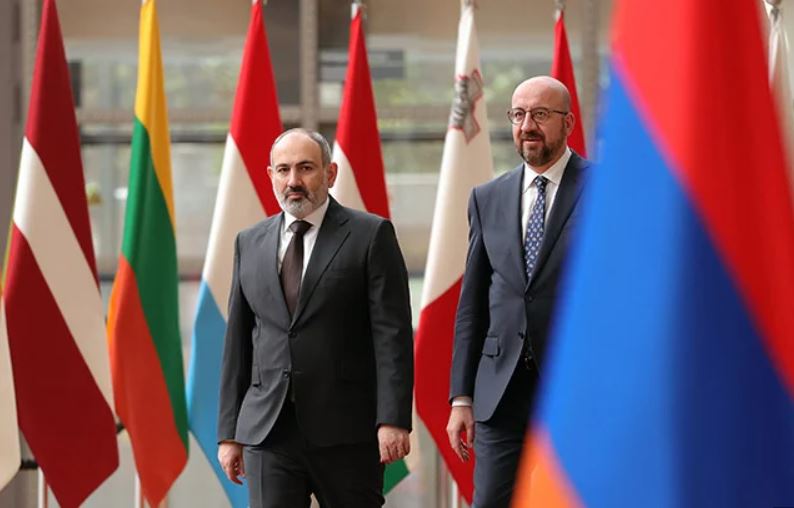During the parliamentary briefings, the chair of the NA Committee on Foreign Relations, Eduard Aghajanyan, insisted that in his famous speech on April 13, Prime Minister Pashinyan did not speak about the status of Artsakh. Of course, it is a matter of perception. I think that the following formulation of the Prime Minister is about Artsakh’s status: “Today, the international community is telling us to lower the bar you set in the Artsakh issue, and you will have greater international consolidation.”
Simple logic allows us to conclude that “our benchmark” is the independence of Artsakh, and the incomprehensible structure of the “international community” tells us that we must lower that benchmark, that is, renounce the independence of Artsakh and agree that it will have some status as part of Azerbaijan.
Unlike the parliamentary opposition and its supporters, I think it is unrealistic to declare Artsakh’s independence as a precondition in the talks. It seems to me that now the goal should be to sign a “peace agreement” with Azerbaijan, where there will be approximately such a wording: “The status of Nagorno-Karabakh will be the subject of further negotiations.”
However, I doubt that it will be possible to sign such an agreement in the near future. And the obstacle is that the “international community” does not exist at all, especially now. Are Russia, Iran, and China an “international community”? Apparently not in this context. By talking about that “community,” Pashinyan means the United States and the EU. Therefore, to be more specific, the Prime Minister says that Anthony Blinken and Charles Michel urge us to “lower the bar” and their position on this issue is “consolidated.” But when someone “requests” something, two questions must be answered: 1) how sincere are they in their “requests”, 2) what levers do they have to uphold their “requests”? I do not have enough information to answer the first question, and I can say for sure about the second that the EU and the US do not have enough interest or means to guarantee any process.
Read also
Only Russia has these means, which, however, is not “consolidated” with the West at all. On the contrary, they are “fighting.” Russian officials say that they are also interested in a peace deal. But there is a “class” in that country whose representatives present themselves as “political scientists” but are in fact the “priests” of the Kremlin. Their responsibility is to try to receive information on what Putin thinks about different issues or, in extreme cases, guess the “tsar’s” thoughts and then write what they know. And now those people are expressing their deep dissatisfaction with the discussions between Pashinyan and Western leaders on Artsakh.
So, it is very likely that this process will lead not to a “peace treaty,” but quite the opposite.
Aram Abrahamyan




















































